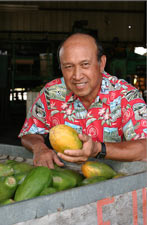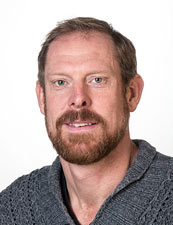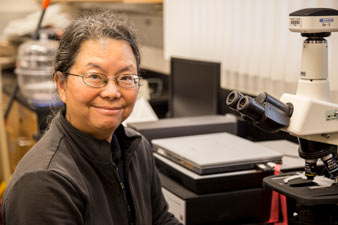Though scientists are often stereotyped as cold and analytical, many share a passion for using science to make the world a better place, as these quotes reveal.

This kind of work is not for the faint-hearted. This kind of work is for people who have a passion to help people. It was in our hearts to make a difference. Dennis Gonsalves, a Hawaii-born Cornell University researcher who developed a transgenic papaya resistant to the ringspot virus.
I don t want a future where people are afraid to use the science to get food. I want a future where all the people around the world have enough food and nobody dies from hunger. Luis Ventura, a biologist on the faculty of the National Autonomous University of Mexico, and an Alliance for Science 2016 Global Leadership Fellow.
Early on in my career, I actually decided not to have children because I realized as a woman with children, I would have a very hard time rising to the top of my field. I would not want other women to have to make that decision. Jennifer Thomson, a South African microbiologist who helps women advance in science, a field often dominated by men.

Nitrogen is such a big problem in food production and it s such a limitation to so many farmers around the world. If I can solve that, and increase food production in Africa, and at the same time remove one of the major pollutants in the world, I ll be a very happy man. Giles Oldroyd, plant scientist at the John Innes Centre in Norwich, England, who is working on ENSA: Engineering the Nitrogen Symbiosis for Africa.
Scientists aren’t just nerds in lab coats. Scientists are people who are working towards the betterment of our lives, our communities, our countries and in planetary ways, too. We’re all trying to do our little part to make the place we live in better for everybody. Sol Guerrero Ortiz, a 2016 Alliance for Science Global Leadership Fellow who is pursuing her master’s degree in wildlife conservation and management at the National University of Costa Rica.
I wanted a job that could help me develop new crop varieties in response to some of the challenges that I had faced as a farmer. That year [2009], people in Uganda died due to lack of food from the drought. I thought God had failed my crops so I could help farmers. Clet Wandui Masiga, 2015 Alliance for Science Global Leadership Fellow, conservation biologist, geneticist, and farm entrepreneur in Uganda.
Science is always bringing new knowledge and new innovations … solutions to real issues like health. And maybe people don’t realize it, but science is everywhere around you. I wanted to be part of that. That’s why I wanted to be a biologist and a scientist. Because I wanted to make a change. L cia de Souza, a Brazilian biologist, plant biochemist, 2016 Alliance for Science Global Leadership Fellow, and director of Cutting Edge Solutions.

I ve always focused primarily on edible crops because I m interested in helping to feed people. Susan Miyasaka, a University of Hawaii agronomist who chose her field after being deeply moved by accounts of global famines while attending college.
It’s hard to go into the barn because I’m depressed for two or three days afterward. There’s an economic and also a personal cost to this. Matt Wheeler, a University of Illinois researcher who used a bovine alpha-lactalbumin gene to turn a pig into a mini Holstein that produces significantly more milk. Though the technology could save some 2.68 million piglets that die annually from failure to thrive, it has failed to advance due to regulatory uncertainty. Meanwhile, Wheeler struggles to find the funding to keep his transgenic animals alive.
